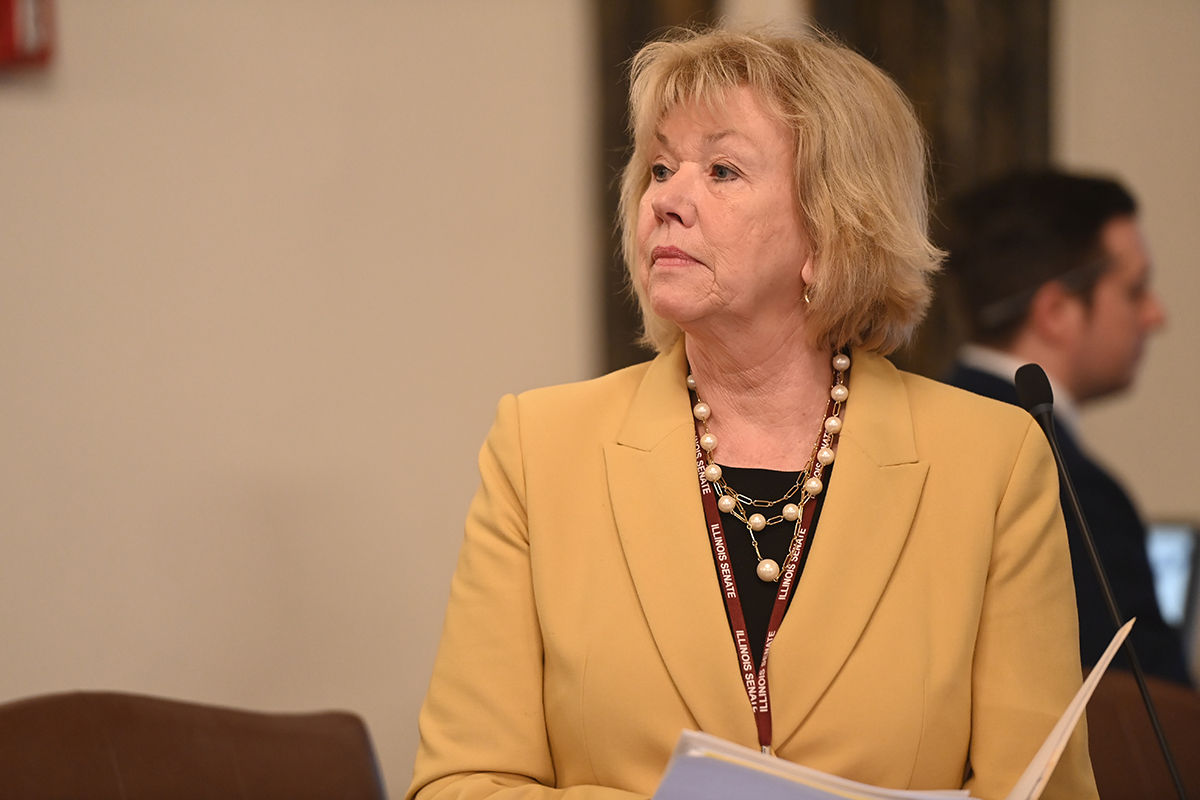Morrison: FY 24 budget puts education at the forefront
- Details
- Category: Latest

“Education is the key to so much in life – it’s only commonsense for it to be at the forefront of our budget. From preschool to college, Illinois students and their families should have the peace of mind that they are receiving the best possible, highest quality education.
“By increasing funding for MAP Grants and the AIM High Grant Program, we are making college more accessible and attainable to students across the state while incentivizing them to stay in Illinois.
“This, in turn, helps job creation and economic growth. We have made great strides in Illinois to prioritize our most vulnerable populations and educating our youngest people. I am proud to support the FY 24 budget.”
Morrison on FY 24 budget: A fiscally responsible investment that prioritizes education
- Details
- Category: Latest
SPRINGFIELD – State Senator Julie Morrison declared the state’s Fiscal Year 2024 budget a fiscally responsible, smart spending plan that prioritizes affordability and accessibility to education at all levels.
“Increasing funding for public education, making college more accessible, and supporting business development all coincide with my priorities in the Senate,” said Morrison (D-Lake Forest). “This responsible spending decision is a vote of confidence in the future of our state.”
Morrison, a Senate Majority Whip, is Vice Chair of the Senate Appropriations-Health and Human Services Committee and was actively involved in budget negotiations. She was proud to support a budget that puts the state on a path toward fiscal responsibility and invests in education from preschool to college.
The budget continues the commitment of a $350 million increase toward the evidence based funding model for K-12 education, and increases Monetary Award Program funding by $100 million – to a total of $701 million.
This increased funding allows nearly all community college students and 40% of public university students at or below median income levels to have their tuition and fees covered through MAP and Pell Grants.
“College affordability is an issue that affects parents all across the state,” Morrison “As a mother of college graduates, I know firsthand that the funding increase to higher education will provide financial security to many families and allow more children to further their education right here in Illinois.”
When Morrison first entered the General Assembly, she passed a measure to create the one-stop business portal to foster entrepreneurship – however, it was never funded. This year, she secured $10 million for the program, leading to a more streamlined process to start a business.
Further, the budget prioritizes business attraction and development, workforce training, economic assistance programs, and more. It includes funds to support job creation, improve commercial corridors and attract new businesses to the state.
“Illinois businesses drive our economy,” said Morrison. “Job creation and business development will bring forth greater financial stability that will invite companies to make our state their home.”
The FY 24 Budget will take effect July 1.
Morrison brings drone safety to district
- Details
- Category: Latest
SPRINGFIELD – Less than a year after State Senator Julie Morrison and her family ran for their lives as a man opened fire from a rooftop in Highland Park, she passed a measure to enhance public safety through the use of drones.
“Drones provide an invaluable resource that can be used to monitor large crowds for suspicious activity,” said Morrison (D-Lake Forest). “This technology exists – there’s no reason we shouldn’t put it in the hands of law enforcement.”
The Morrison-led measure allows law enforcement to use drones to monitor special events, like parades and festivals, to detect breaches and identify public safety issues. Under House Bill 3902, law enforcement could use drones at parades, walks, concerts or other events that are outdoors and open to the public.
“The devastating July day in Highland Park underscored the need for increased public safety initiatives for large events,” said Morrison. “I can’t help but wonder what the outcome of that July day would’ve been had this law been in place.”
It comes in response to the Fourth of July mass shooting that killed seven and wounded dozens more in Highland Park. The shooter fired a rifle on parade crowd from the rooftop of a downtown building.
“The City of Highland Park appreciates the work of Senators Morrison and Holmes leading on legislation that will broaden the use of drones by public safety in certain situations, specifically for preventative use against public safety threats towards public gatherings,” said Highland Park Mayor Nancy Rotering. “Allowing our public safety personnel the use of drones to monitor large scale public events will increase their ability to secure an area, and save time while improving the delivery of life-saving services.”
House Bill 3902 passed the Senate Wednesday.
Morrison applauds U.S. Supreme Court’s decision to refuse to block assault weapons ban
- Details
- Category: News

“The decision by the U.S. Supreme Court is a positive step toward further ensuring military-style weapons – designed for war and not for sport – do not decimate our communities.
“I remain hopeful that this is a positive sign for the Protect Illinois Communities Act and trust in Attorney General Kwame Raoul to work diligently to defend its constitutionality.”
More Articles …
Page 35 of 134







